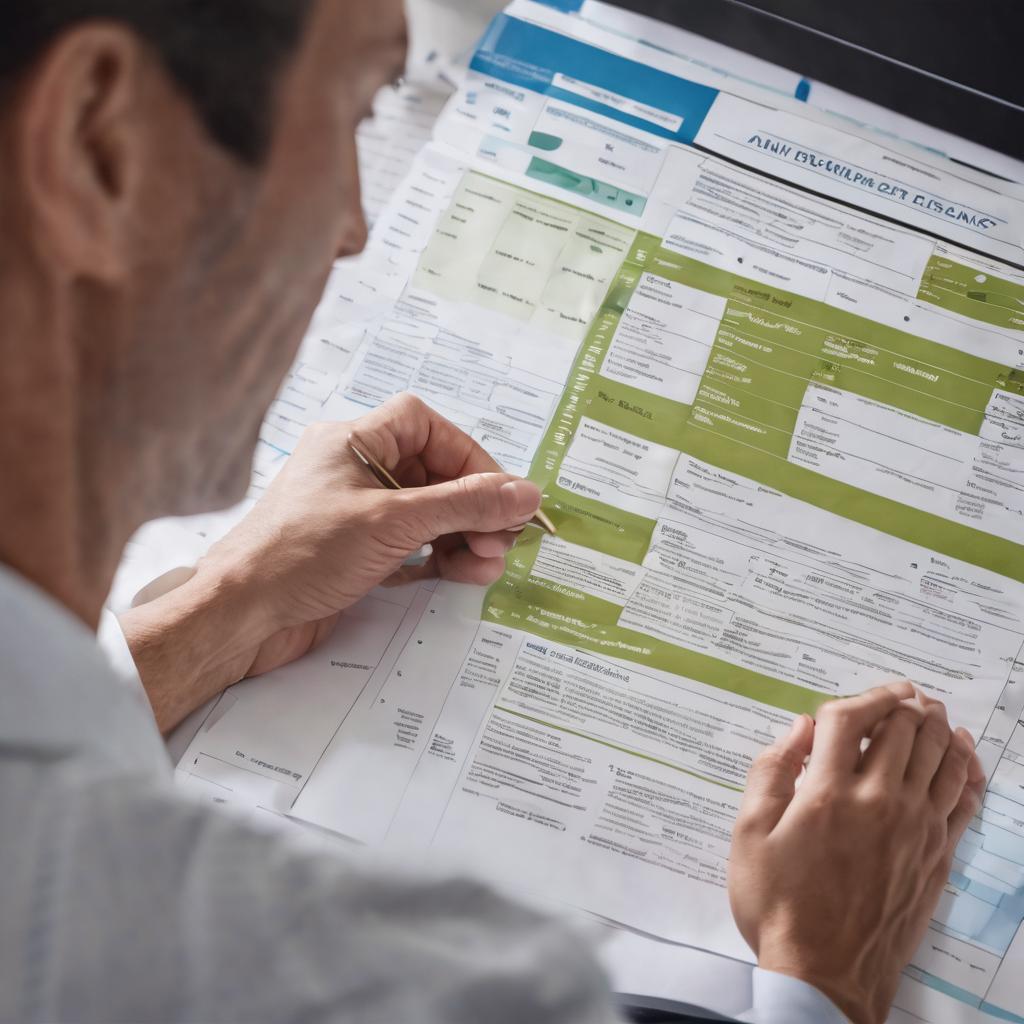What Does Auto Insurance Cover?

Contents
- 1 Liability Coverage: Understanding the basics of liability coverage in auto insurance
- 2 Collision Coverage: How collision coverage protects you in the event of a car accident
- 3 Comprehensive Coverage: Exploring the scope of comprehensive coverage and what it includes
- 4 Personal Injury Protection (PIP): Understanding the benefits of PIP coverage for medical expenses and lost wages
- 5 Uninsured/Underinsured Motorist Coverage: How this coverage safeguards you against drivers without adequate insurance
- 6 Medical Payments Coverage: Explaining the purpose and coverage of medical payments in auto insurance
- 7 Rental Car Coverage: Understanding the options for rental car coverage in case of an accident or breakdown
- 8 Gap Insurance: Exploring the benefits of gap insurance and how it bridges the gap between your car’s value and loan amount
- 9 Towing and Labor Coverage: Discussing the importance of towing and labor coverage for roadside assistance
- 10 Optional Coverage: Exploring additional optional coverages available in auto insurance policies
Liability Coverage: Understanding the basics of liability coverage in auto insurance
Liability coverage is a fundamental component of auto insurance policies that every driver should understand. In the event of an accident where you are found at fault, liability coverage helps protect you financially by providing coverage for bodily injury and property damage to others. This coverage helps to cover medical expenses, loss of income, and property repairs or replacements for the other party involved.
It’s important to note that liability coverage is typically split into two categories: bodily injury liability and property damage liability. Bodily injury liability covers the medical expenses and loss of income of the other party, while property damage liability covers the repair or replacement costs of their property. The specific limits for liability coverage can vary depending on the policy, but it is important to select coverage limits that adequately protect your assets and financial well-being in the event of an accident. Understanding liability coverage is crucial for responsible driving and protecting yourself from potential financial hardships.
Collision Coverage: How collision coverage protects you in the event of a car accident
Accidents happen, and when they do, collision coverage can be your saving grace. This type of auto insurance protection safeguards you against the financial burden of repairing or replacing your vehicle after a collision. Whether you collide with another vehicle, a stationary object, or even in the unfortunate event of a hit-and-run, collision coverage steps in to cover the costs. From minor fender benders to more severe crashes, having this coverage ensures that you are not left to shoulder the expenses on your own.
Collision coverage is particularly essential if you have a newer or more valuable vehicle. In the event of an accident, repairing or replacing these types of cars can be a significant financial setback. However, with collision coverage in place, your insurance provider will handle most, if not all, of the necessary repairs or replacement costs, up to the policy’s coverage limits. This protection gives you peace of mind on the road and helps you get back on track without incurring substantial financial strain. Remember, though, collision coverage typically comes with a deductible, which is the amount you must pay out of pocket before your insurance kicks in. It’s important to consider this factor when choosing the level of coverage that best suits your needs.
Comprehensive Coverage: Exploring the scope of comprehensive coverage and what it includes
Comprehensive coverage is a crucial component of auto insurance that provides protection against various non-collision damages to your vehicle. This type of coverage is designed to safeguard you from events such as theft, vandalism, fire, hail, falling objects, and natural disasters like floods or hurricanes. Essentially, comprehensive coverage extends beyond accidents on the road and offers financial security for unforeseen circumstances that may cause damage to your vehicle. It is important to note that comprehensive coverage typically includes a deductible, which is the amount you are responsible for paying before your insurance coverage kicks in.
In addition to the standard non-collision damages mentioned above, comprehensive coverage may also cover broken or shattered glass, damage caused by hitting an animal, or even instances of civil unrest. By opting for comprehensive coverage, you can have peace of mind knowing that you are protected against a wide range of potential risks. However, it’s crucial to review your policy and understand the specific details of what is included in your comprehensive coverage, as certain limitations and exclusions may apply depending on your insurance provider.
Personal Injury Protection (PIP): Understanding the benefits of PIP coverage for medical expenses and lost wages
Personal Injury Protection (PIP) coverage is an important component of auto insurance policies, as it provides valuable benefits for medical expenses and lost wages. In the event of an accident, PIP coverage can help to cover the medical costs for injuries sustained by the insured and any passengers in the vehicle. This can include expenses such as hospital bills, doctor visits, medications, and even rehabilitation services. Having PIP coverage can alleviate the financial burden of these medical expenses, allowing individuals to focus on their recovery without worrying about the costs involved.
Additionally, PIP coverage can also provide benefits for lost wages resulting from an accident. If an individual is unable to work due to injuries sustained in a car accident, PIP coverage can help to provide a portion of their lost income. This can be particularly beneficial for those who rely on their income to support themselves and their families. By providing financial assistance during a time of lost wages, PIP coverage can provide much-needed stability and peace of mind. Overall, Personal Injury Protection (PIP) coverage offers essential benefits for individuals involved in accidents, ensuring that they can receive necessary medical care and support during the recovery process.
Uninsured/Underinsured Motorist Coverage: How this coverage safeguards you against drivers without adequate insurance
Uninsured/Underinsured Motorist (UM/UIM) coverage is an essential component of auto insurance that provides financial protection in the unfortunate event of an accident involving a driver who does not have sufficient insurance coverage. It safeguards you against potential losses and expenses that may arise if you are involved in a collision with an uninsured or underinsured driver.
Without this coverage, you could be left personally responsible for medical bills, property damage, and other costs depending on your state’s laws. UM/UIM coverage helps bridge the gap, providing you with the peace of mind that even if the at-fault driver lacks adequate insurance, your own policy will step in to compensate for your damages. It ensures that you are not left bearing the burden of costs simply because the other driver failed to have the necessary insurance coverage. By including UM/UIM coverage in your auto insurance policy, you are taking proactive steps to protect yourself and your financial well-being in the event of an accident.
Medical Payments Coverage: Explaining the purpose and coverage of medical payments in auto insurance
Medical Payments Coverage, also known as MedPay, is an optional coverage offered in auto insurance policies. Its purpose is to provide financial assistance for medical expenses resulting from an accident, regardless of who is at fault. This coverage can help cover medical bills, hospital stays, surgeries, doctor visits, and even funeral expenses, up to the limit specified in the policy. It can be especially helpful if you do not have health insurance or have a high deductible, as it can provide immediate funds to cover your medical costs.
Unlike some other coverages in auto insurance, Medical Payments Coverage is not dependent on determining fault or waiting for the outcome of a settlement. Regardless of who caused the accident, MedPay can help pay for your medical expenses. It can also cover your passengers’ medical expenses, or anyone else injured in your vehicle. This coverage is generally available in limits ranging from a few thousand dollars up to a higher amount, depending on your needs and the insurance company’s offerings. It is important to review your policy and understand the specifics of your coverage to ensure you have adequate protection in the event of an accident.
Rental Car Coverage: Understanding the options for rental car coverage in case of an accident or breakdown
Rental car coverage is an optional add-on to your auto insurance policy that provides financial protection in case your car is in an accident or breaks down and needs repairs. When your primary vehicle is being repaired, rental car coverage can help cover the cost of renting a replacement vehicle. This coverage is particularly valuable if you rely on your car for daily commuting or have a busy schedule where being without a vehicle for an extended period would be inconvenient. It provides peace of mind knowing that you will have a temporary vehicle available while yours is being repaired, minimizing any disruption to your daily life or work obligations.
There are several options available for rental car coverage within auto insurance policies. Some policies may offer reimbursement for the cost of renting a car, while others may have a set limit for the number of days you can rent a replacement vehicle. It’s important to review your policy and understand the specific details of the rental car coverage to ensure it meets your needs. Additionally, there may be certain requirements or restrictions when using rental car coverage, such as renting from authorized providers or selecting a vehicle that is similar in size and type to your own. Taking the time to familiarize yourself with the terms and conditions of the coverage will help you make informed decisions when it comes to renting a replacement car in case of an accident or breakdown.
Gap Insurance: Exploring the benefits of gap insurance and how it bridges the gap between your car’s value and loan amount
Gap insurance is a type of coverage that can be extremely helpful in certain situations. When you purchase a new car and finance it through a loan, the value of the car begins to depreciate as soon as you drive it off the lot. However, the loan amount remains the same. As a result, there can be a significant gap between the value of your car and the amount you owe on your loan. This is where gap insurance comes in – it covers the difference, or the “gap,” between what you owe on your loan and the actual cash value of your car.
The benefits of gap insurance are evident when you consider the potential financial implications of a total loss due to theft or an accident. In these situations, your insurance company will typically pay you the actual cash value of the car at the time of the loss. However, if you owe more on your loan than the car is worth, you could be left responsible for the remaining loan balance out of your own pocket. Gap insurance helps ensure that you are not left bearing the burden of paying off a car loan for a vehicle you no longer have, giving you invaluable peace of mind.
Towing and Labor Coverage: Discussing the importance of towing and labor coverage for roadside assistance
Towing and Labor Coverage provides an essential safety net for drivers, offering peace of mind knowing that assistance is just a phone call away in case of a breakdown or vehicle malfunction. Whether you find yourself stranded on the side of the road due to a flat tire, dead battery, or mechanical failure, this coverage ensures that qualified help will be dispatched to get you back on the road as quickly and efficiently as possible. Roadside assistance services covered under this policy typically include towing, jump-starts, tire changes, fuel delivery, and lockout assistance. Having towing and labor coverage can be a valuable asset, especially in situations where you are far from home or unsure of how to handle a vehicle emergency.
Unexpected car troubles can occur at any time, leaving you feeling stranded and helpless. This is where towing and labor coverage steps in, offering a lifeline in times of need. Imagine being stranded on a deserted road in the middle of the night or during inclement weather – a situation that can be anxiety-inducing and potentially dangerous. With towing and labor coverage, you can rest assured knowing that help is just a phone call away. Whether your car needs to be towed to a nearby repair shop or you require on-the-spot assistance, this coverage provides the necessary support to get you back on your way without the undue stress and hassle of dealing with vehicle breakdowns alone.
Optional Coverage: Exploring additional optional coverages available in auto insurance policies
Additional optional coverages are available in auto insurance policies to provide extra protection and peace of mind for policyholders. One such coverage is roadside assistance, which offers help in case of vehicle breakdowns, flat tires, or dead batteries. This coverage often includes services like towing, fuel delivery, locksmith services, and tire changes. Having roadside assistance can be beneficial, especially for those who frequently travel long distances or have older vehicles that may be more prone to mechanical issues.
Another optional coverage to consider is gap insurance. This coverage is designed to bridge the gap between the actual cash value of a vehicle and the amount owed on a loan or lease. In the event of a total loss, such as theft or severe damage, gap insurance can help cover the remaining balance on the loan or lease that is not covered by the primary insurance payout. Gap insurance can be particularly useful for individuals who have financed a new vehicle or leased a car, as it can protect them from significant financial loss in the event of an accident.






